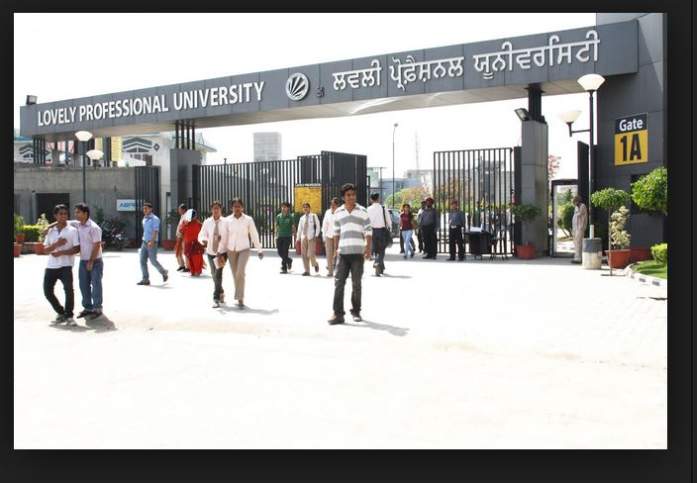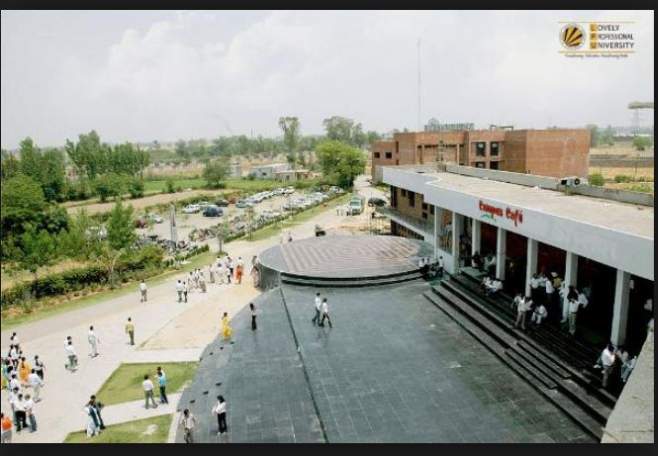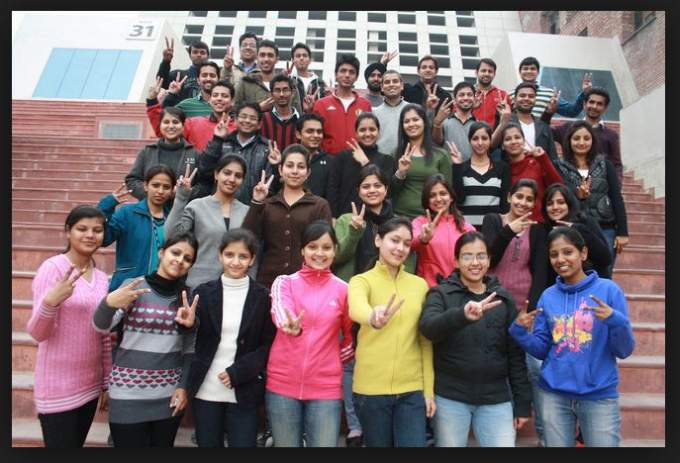|
#2
7th August 2015, 10:07 AM
| |||
| |||
| Re: Lovely Professional University M Com
As you want to get the eligibility criteria and the syllabus of Lovely Professional University M.Com so here is the information of the same for you: Eligibility Criteria: Candidates must have passed with 50% aggregate marks in Bachelors degree (Commerce/ Management/ Economics/ Accounting) or equivalent. Admission Criteria Merit in qualifying examination Fees Structure: Programme Fee Phase I (With EDB) Applicable till 30 th May 2015 Tuition Fee ` 19500 90% or above ` 9500 80% – 89.99% ` 9500 70%– 79.99% ` 14500 Below 70% with valid LPU-TFA score ` 14500 Phase II (Without EDB) Applicable from 1 st June to 30 th June 2015 Tuition Fee ` 29500 90% or above ` 19500 80% – 89.99% ` 19500 70%– 79.99% ` 24500 Below 70% with valid LPU-TFA score ` 24500 Phase III (Without EDB) Applicable from 1 st July to 25 th July 2015 Tuition Fee ` 29500 90% or above ` 24500 80% – 89.99% ` 24500 70%– 79.99% ` 24500 Below 70% with valid LPU-TFA score ` 24500 Programme Fee(for International applicants Except Sri Lanka, Bhutan, Nepal, Maldives and Bangladesh) Tuition Fee With EDB US $1225 (per semester) Without EDB US $1350 (per semester) Programme Fee(for International applicants from Sri Lanka, Bhutan, Nepal, Maldives and Bangladesh) Tuition Fee Rs 19500 With EDB Rs 29500 (per semester) Without EDB DURATION OF THE PROGRAMME: Minimum Duration 2 Years Maximum Duration 5 years Syllabus of M.Com: Syllabus: Term 1: ORGANISATION BEHAVIOUR BUSINESS ENVIRONMENT MANAGEMENT ACCOUNTING CORPORATE LEGAL FRAMEWORK MANAGERIAL ECONOMICS Term 2: MARKETING MANAGEMENT FINANCIAL MANAGEMENT HUMAN RESOURCE MANAGEMENT RESEARCH METHODOLOGY CONTEMPORARY ACCOUNTING Term 3: INTERNATIONAL BUSINESS INDIRECT TAX LAWS INDIAN FINANCIAL SYSTEM SECURITY ANALYSIS AND PORTFOLIO MANAGEMENT WORKING CAPITAL MANAGEMENT Term 4: STRATEGIC MANAGEMENT STOCK MARKET OPERATIONS CORPORATE TAX PLANNING ADVANCED AUDITING FINANCIAL DERIVATIVES ORGANIZATION BEHAVIOR: 1. Foundations of Organizational Behaviour: The nature and determinants of organizational behavior , Roles & Functions of Managers & need for knowledge of OB, contributing disciplines to the field 2. Individual Behaviour: Biographical characteristics, Ability, Learning: Theories of Learning (Classical Conditioning, Operant Conditioning, Social Learning) Values, attitudes & Job satisfaction 3. Personality: Determinants, Personality Testing: Myers Briggs Type Indicator, Big Five Model. Emotions, Emotional Intelligence. Perception & Individual Decision Making 4. Work Motivation: Early Theories (Mc. Gregor’s Theory X & Y , Abraham Maslow’s Need Hierarchy Theory , Herzberg’s Two Factor Theory) & Contemporary Theories (Mc. Clelland’s 3 Needs Theory , Alderfer’s ERG Theory , Adam’s Equity Theory & Vroom’s Expectancy Theory, Goal Setting Theory) & Applications of Motivation Theories 5. Group Behaviour : Types of Groups, Stages of Group Development, Group Decision Making, Group Properties Understanding Teamwork: Types of Teams, Creating Effective teams, Turning individuals in team players. 6. Current issues in organizational communication: Gender and Cross Cultural issues, Politically correct communications 7. Leadership: Basic Approaches (Trait Theories, Behavioral Theories & Contingency Theories), Transactional vs. Transformational leaders, Charismatic leaders. 8. Conflict: Transition in conflict thought, the conflict process, conflict and negotiation: bargaining strategies, transactional analysis as a tool for conflict management Negotiation process, issues in negotiation. Power and Politics. 9. Organizational Change & Stress Management: Forces for Change, types of change, resistance to change, Lewin’s 3 step model for managing planned change, Contemporary change issues 10. Stress management: Sources of stress, individual differences, stress management techniques BUSINESS ENVIRONMENT: 1. Indian Business Environment: Theoretical Framework of Business Environment, Recent developments in political, economical and financial environment. 2. Techniques of environment scanning and monitoring, SWOT analysis of Indian Economy. 3. Industrial Policy and Regulatory Structure: Industrial Policies; Industrial Licensing; Stock Exchanges in India; Liberalisation, Privatisation and Globalisation. 4. Economic Environment of business: Economic Trends; National Income; Industrialisation and Economic Development; Inflation, Problems of Growth. 5. Political Environment: India’s Monetary and Fiscal Policy; Foreign Trade Policy and BoP; Direct and Indirect Taxes. 6. Socio – Cultural Environment: Poverty in India; Unemployment in India; Human development, Rural Development, Business Ethics, Corporate Governance and Corporate Social Responsibility 7. Legal Environment: MRTP Act, FERA, FEMA, IPR, RTI. 8. Foreign Trade: Foreign Investment, MNCs; EXIM Policy; SEZ. 9. International Business Environment: International Organisations: IMF, World Bank, ADB, WTO. 10. Contemporary issues in Business Environment. MANAGEMENT ACCOUNTING: 1. Introduction to Accounting: Management accounting as a area of accounting; Branches of Accounting & its inter relationships, and Role of Management Accountant 2. Understanding Corporate Financial statements: types, form, content, uses and limitations 3. Financial Statement Analysis: Common-size statements, Comparative statements, Trend analysis. 4. Ratio Analysis: Liquidity, Solvency, Profitability, Turnover Ratios; Calculation and relevance for analysis 5. Fund Flow Statement & Cash Flow Statement 6. Budgeting: meaning, features, types and preparation of Budgets & Budgetary Control System: features, objectives and Zero-base Budgeting 7. Standard Costing and Variance Analysis 8. Responsibility Accounting and Transfer Pricing 9. Introduction to methods of costing: Absorption costing, Marginal costing & CVP Analysis, Use of cost data in decision making: Decisions involving alternative choices, pricing Decisions 10. Management Reporting and MIS CORPORATE LEGAL FRAMEWORK: 1. Laws of Contract: Meaning, nature of Contract, elements of valid contract, proposal, consideration, Laws of contract: Agreement declared as void, performance of contract, Discharge of contract, remedies for Breach of Contract. 2. Consumer protection Act, 1986, FEMA Act, 1999, Information technology Act, 2000, The competition Act 2002 3. Negotiable Instrument Act, 1881: Meaning, types of negotiable instruments, rules and regulations associated with the Act. 4. Indian Companies Act, 1956: Meaning, kinds of Companies. 5. Formation of Company: Documents related with incorporation: Memorandum of Association, Articles of Association, and Prospectus. 6. Share Capital : Company Management and Administration, types of Meetings, Liquidation of Company. 7. Industrial Law: Factories Act, 1948, workmen’s compensation Act, 1923. 8. Employee provident fund Act, 1952, payment of gratuity Act, 1972, minimum wages Act, 1948, trade unions Act, 1926. 9. The Securities and exchange board of India: Establishment of SEBI, Powers and Functions of SEBI. MANAGERIAL ECONOMICS: 1. Introduction to Managerial Economics: Scope of Economics, Economic Principles relevant to Managerial Decisions, Relationship of Managerial Economics with Decision Sciences. 2. Market Demand and Supply: Determinants of Demand, Basis for Demand; Direct and Derived demand; Law of Demand, Law of Supply, Market Equilibrium. Consumer Behavior. 3. Utility analysis: Cardinal and Ordinal utility, Equi-marginal utility. Indifference curve and its properties. Consumer Equilibrium with Cardinal and Ordinal approach, Consumer surplus, Price, Income and Cross Elasticity of Demand. 4. Production Theory: Production Functions with one variable and two variable inputs, Producers’ Equilibrium, Expansion Path, Total, Marginal and Average Revenue curve; Law of Diminishing Returns to Factor; Returns to Scale. 5. Cost Analysis: Types of Costs; Short Run and Long Run Cost Curves; Economics of Scope and Economies of Scale. Revenue Analysis: Types of Revenue Curves and their applications. 6. Market Structure: Perfect Competition; Assumptions, Price and Output determination in PerfectCompetition in Short and Long run. 7. Imperfect Competition: Monopoly–Features; Price and Output decisions; Price Discrimination. 8. Monopolistic Competition: Features; Price and Output decisions; Short and Long run Equilibrium. 9. Oligopoly: Features; Cartels and Collusions (introductory); Kinked Demand curve. 10. National income: Concepts, Methods of measuring National Income, Problems in measuring National Income, Circular Flow of Income in 2 Sector and 4 Sector model MARKETING MANAGEMENT: 1. Marketing Concepts, Marketing Mix, Marketing Environment 2. Strategic Planning Process, Market segmentation and Targeting and positioning 3. Marketing Research, Marketing Information system 4. Consumer Buying Behaviour, Consumer buying decision process 5. Managing product, Product Differentiation and Positioning, New Product Development, Product Life cycle, Managing Brands and Brand equity 6. Meaning and Significance of price, Factors influencing pricing, General Pricing Approaches, Pricing Strategies 7. Physical Distribution and Marketing Logistics, Marketing Channels, Creating and Managing Dealer Network, Retailing and Wholesaling. 8. Integrated Marketing Communication, Sales Promotions, Advertising and Public Relations, Sales Management, Personal Selling, Direct Marketing 9. Marketing Evaluation and Control, Marketing of services 10. Recent concepts in Marketing, Global Marketing Strategies for Indian Firms. For more detailed information I am uploading a PDF file which is free to download: Contact Details: Lovely Professional University Jalandhar-Delhi G.T. Road, National Highway 1 Phagwara, Punjab 144411 India Map Location: [MAP]Lovely Professional University India[/MAP]     |